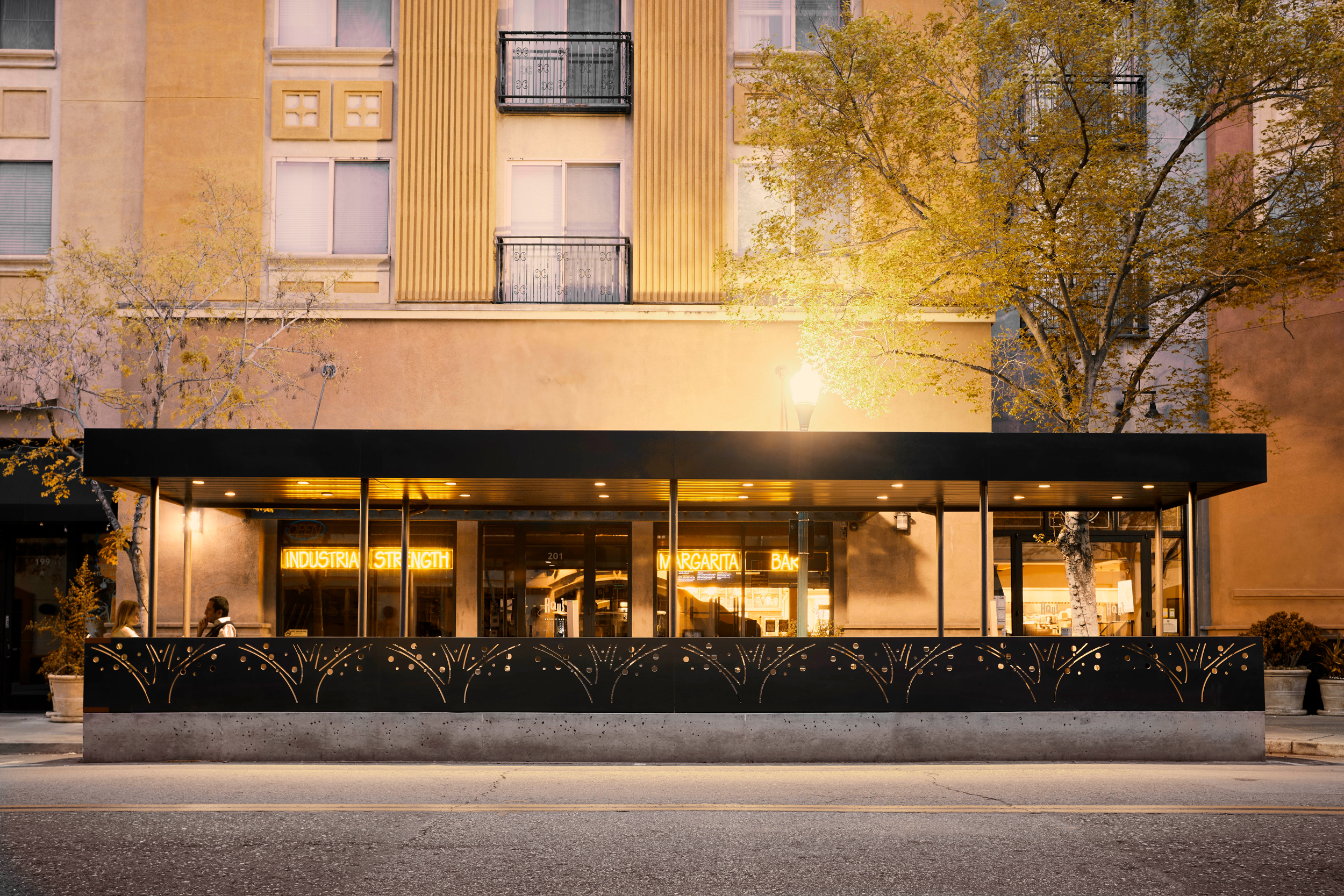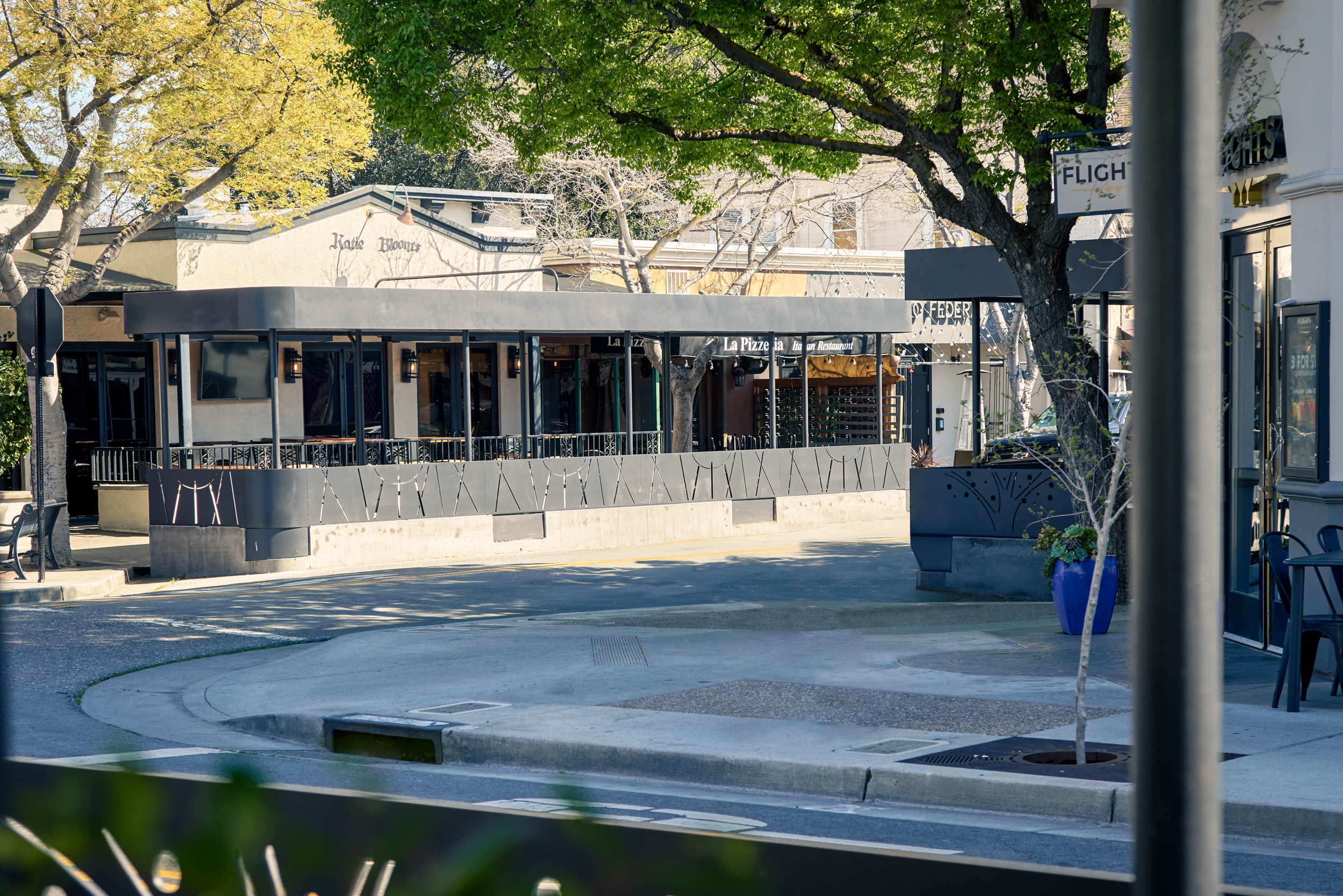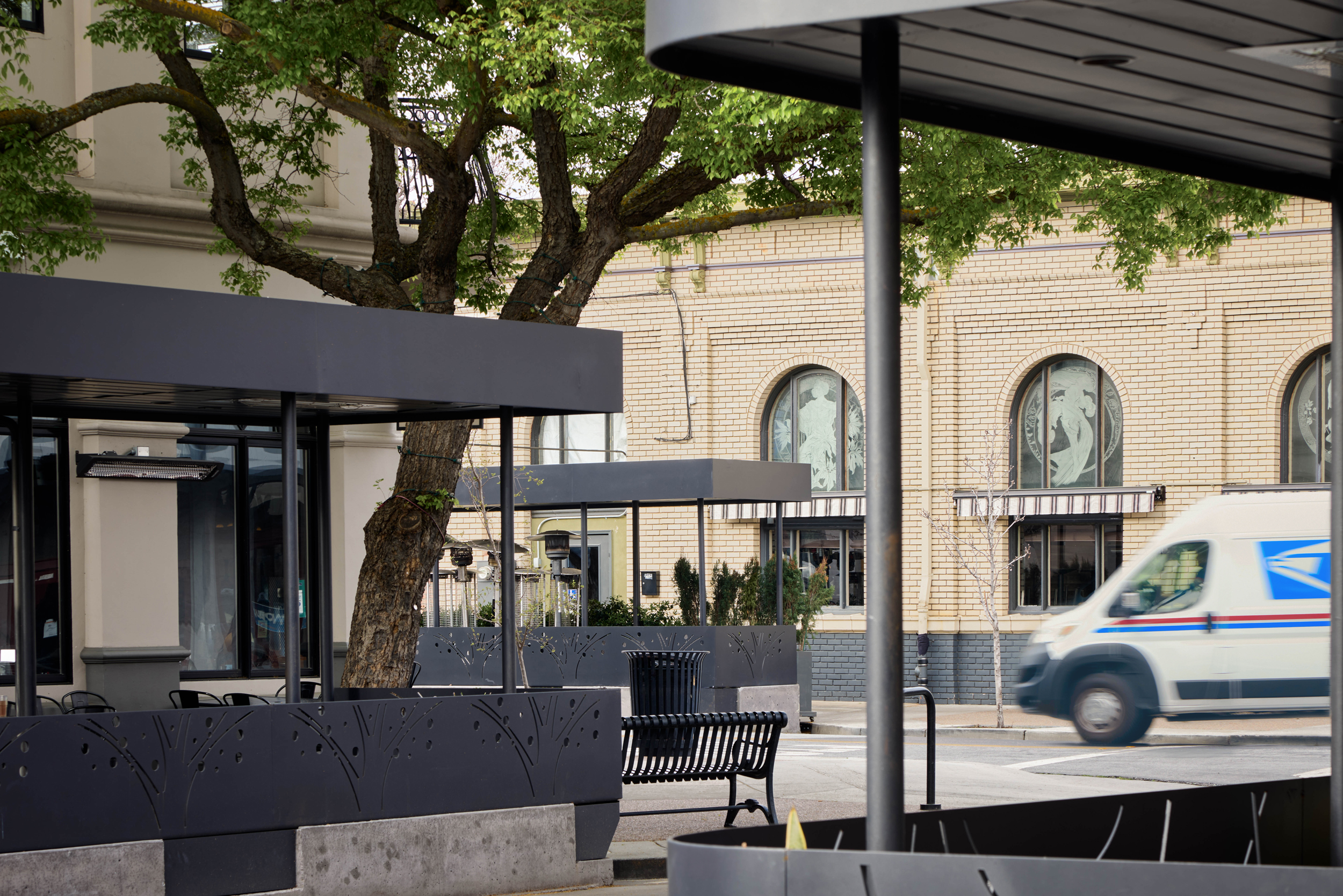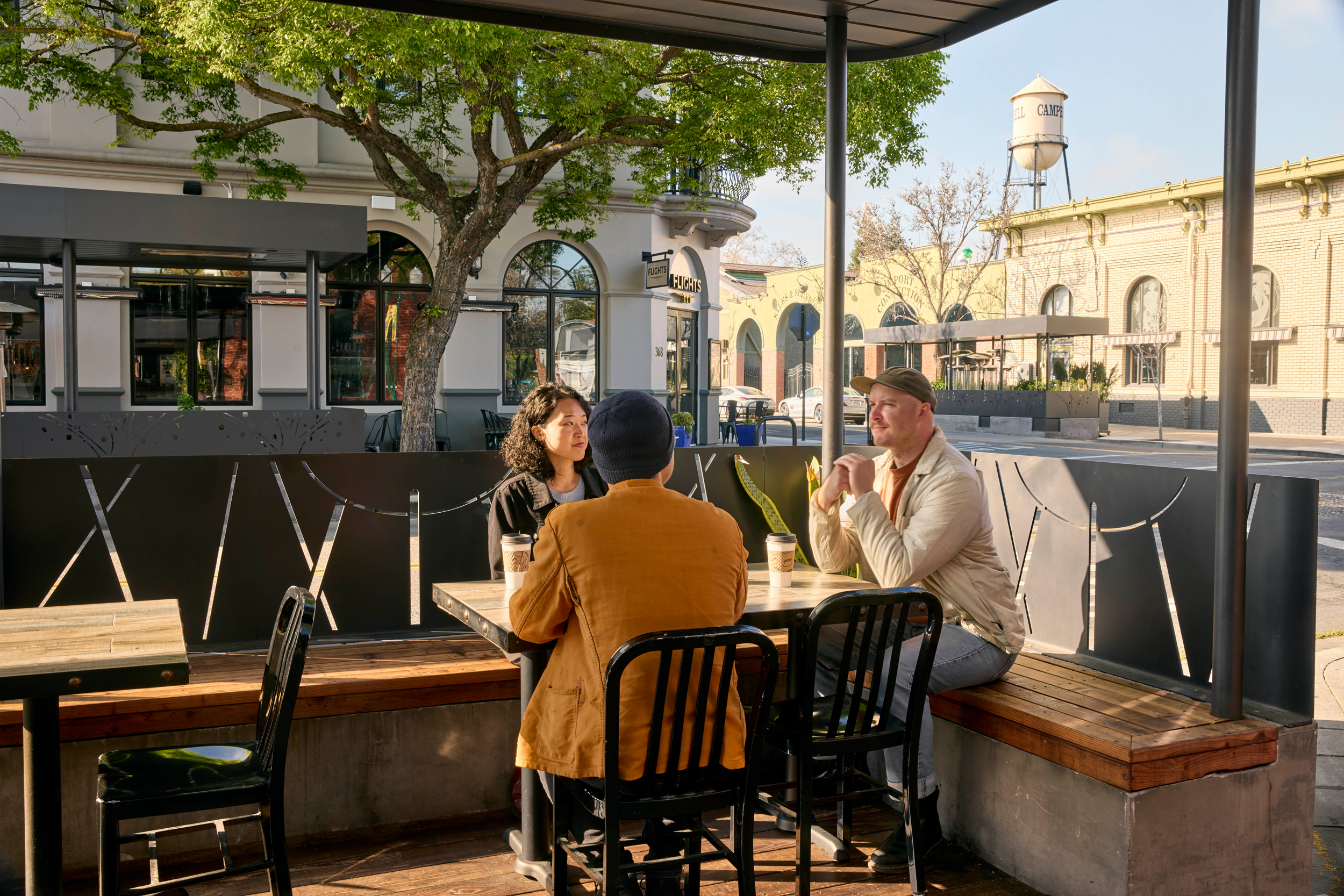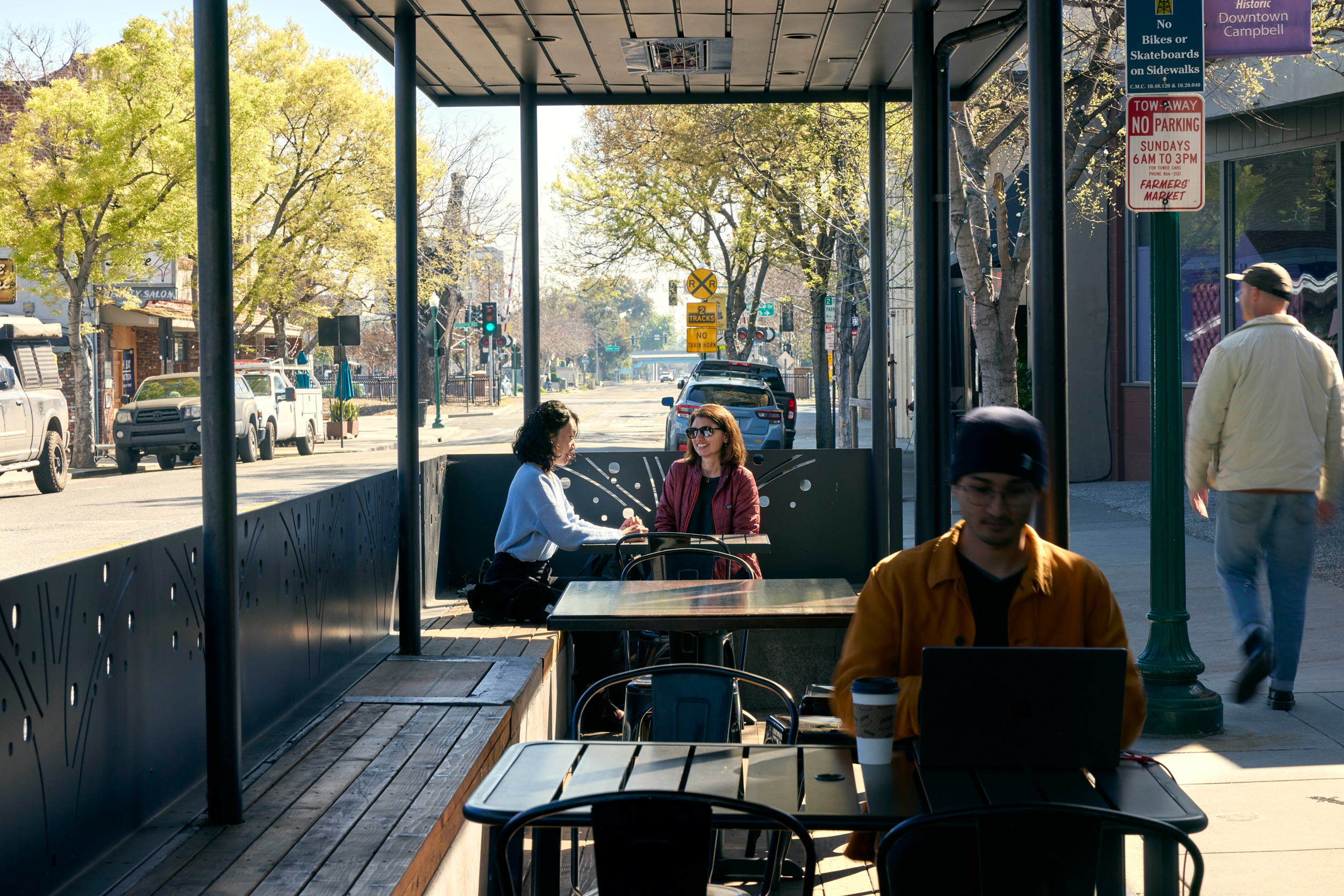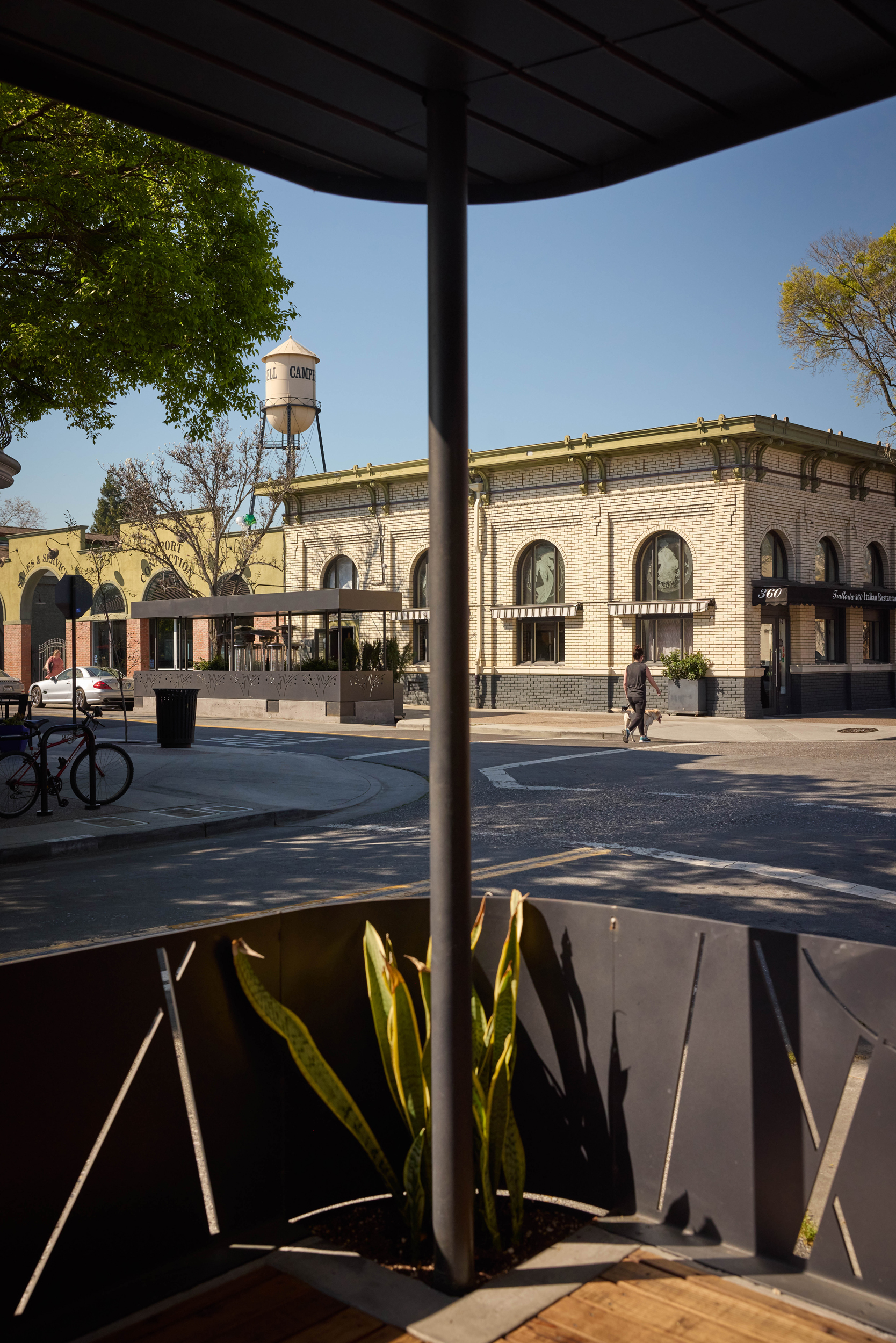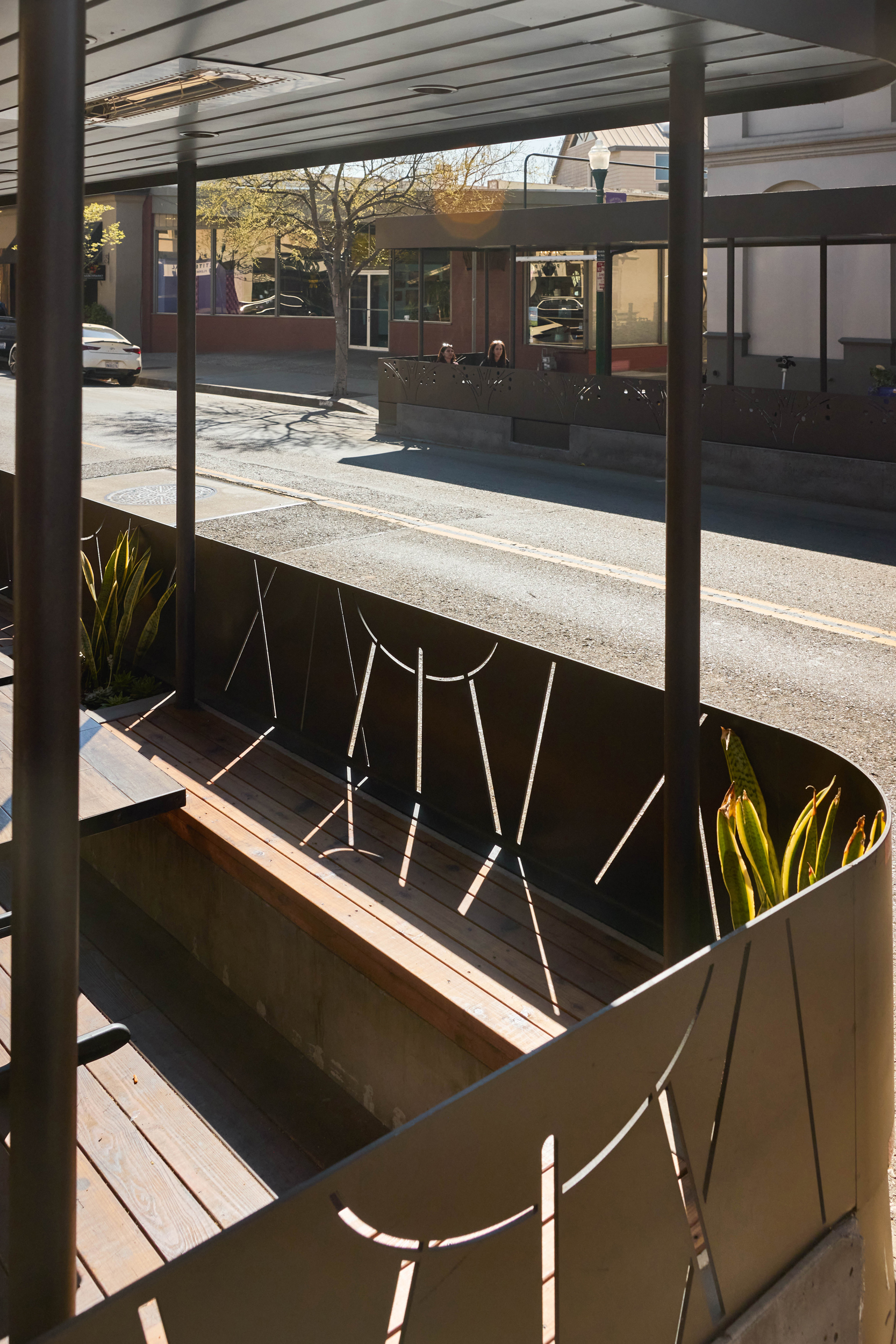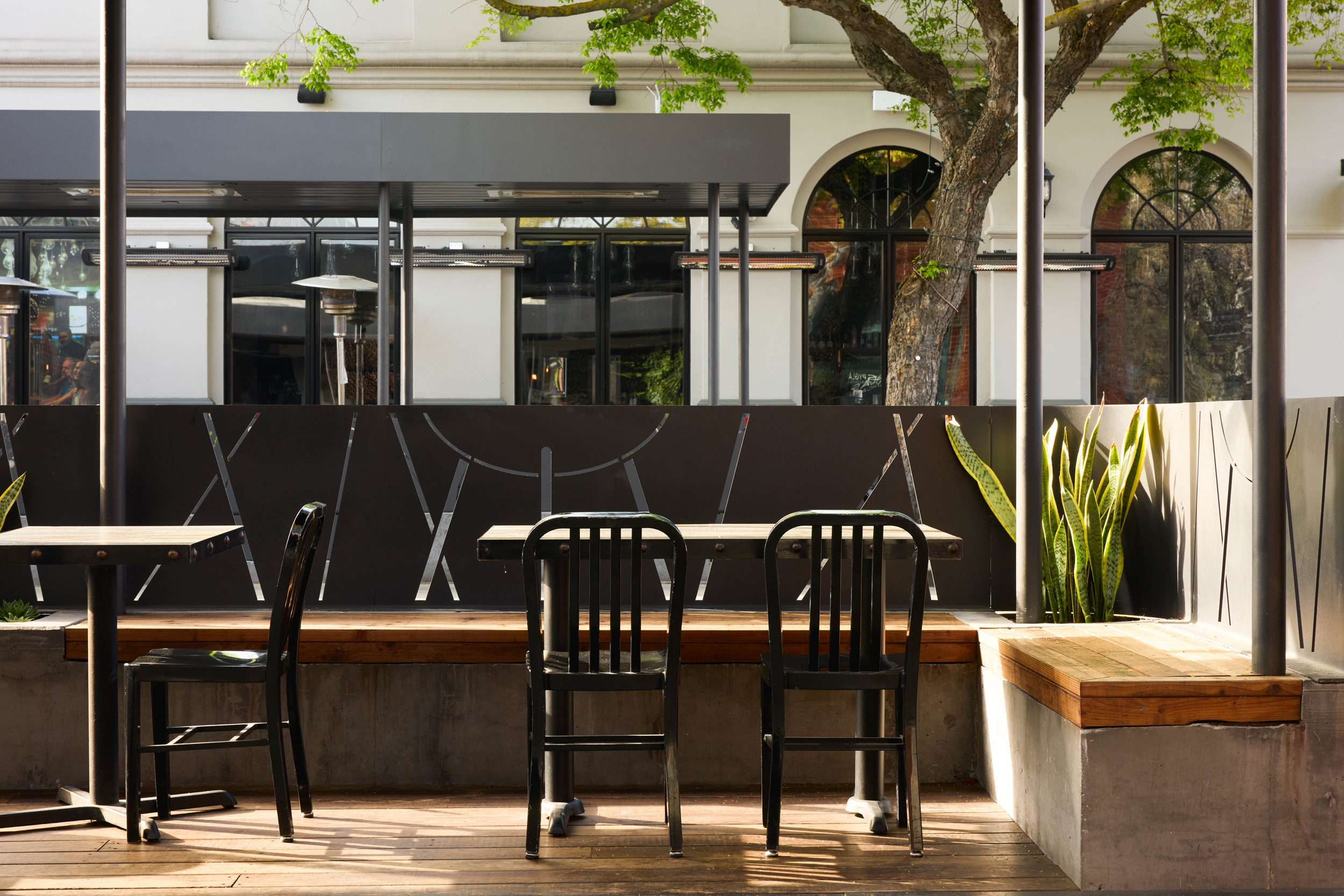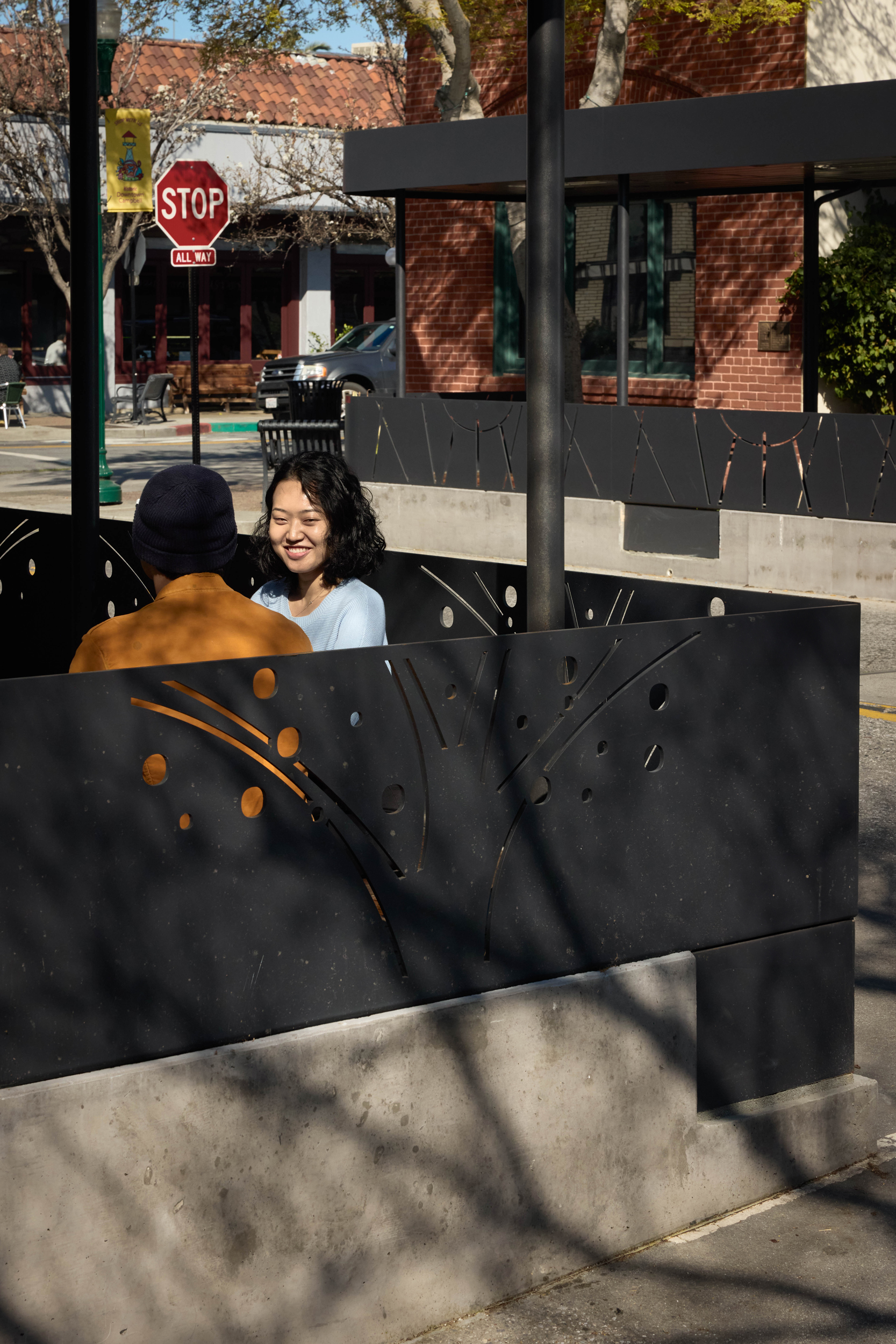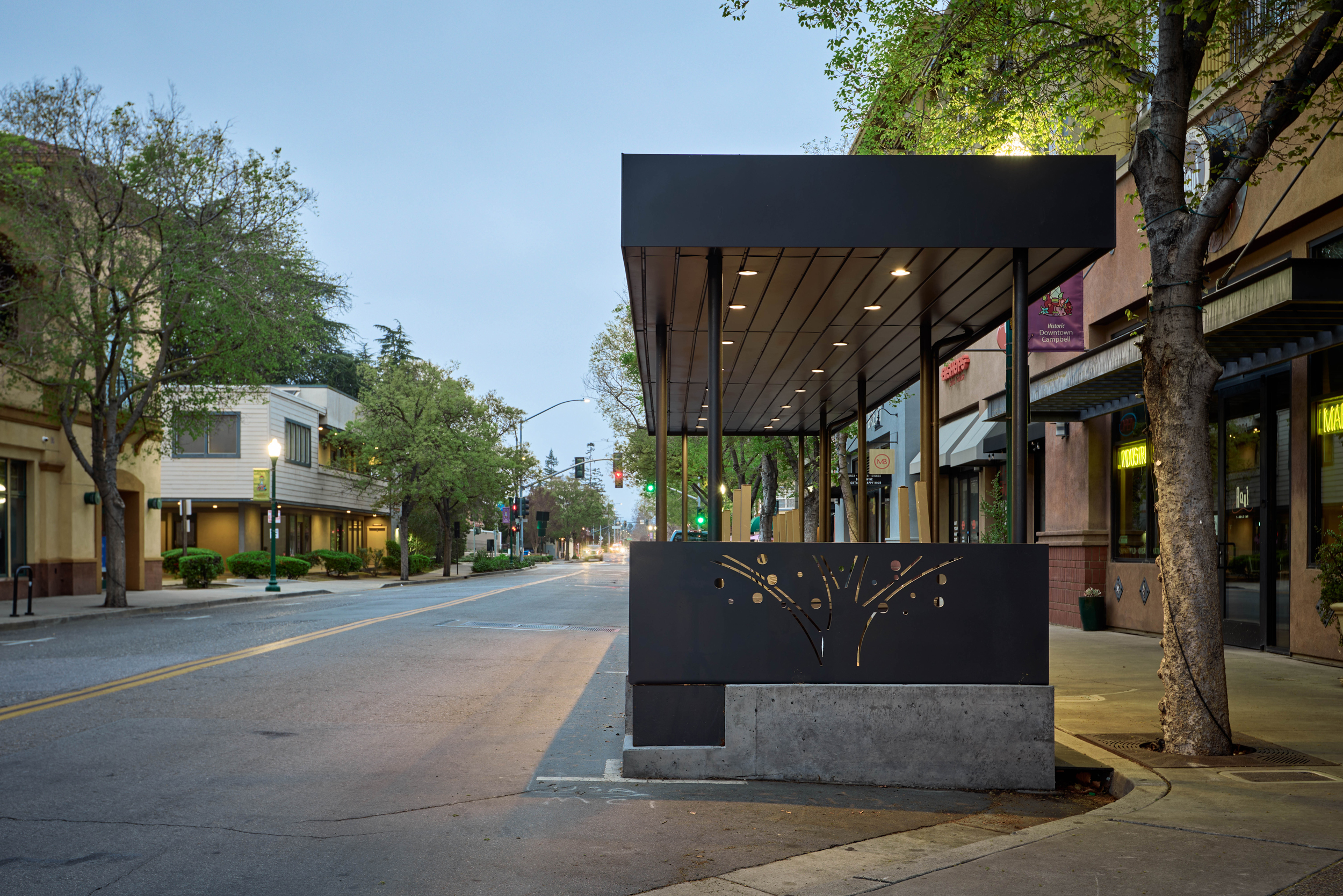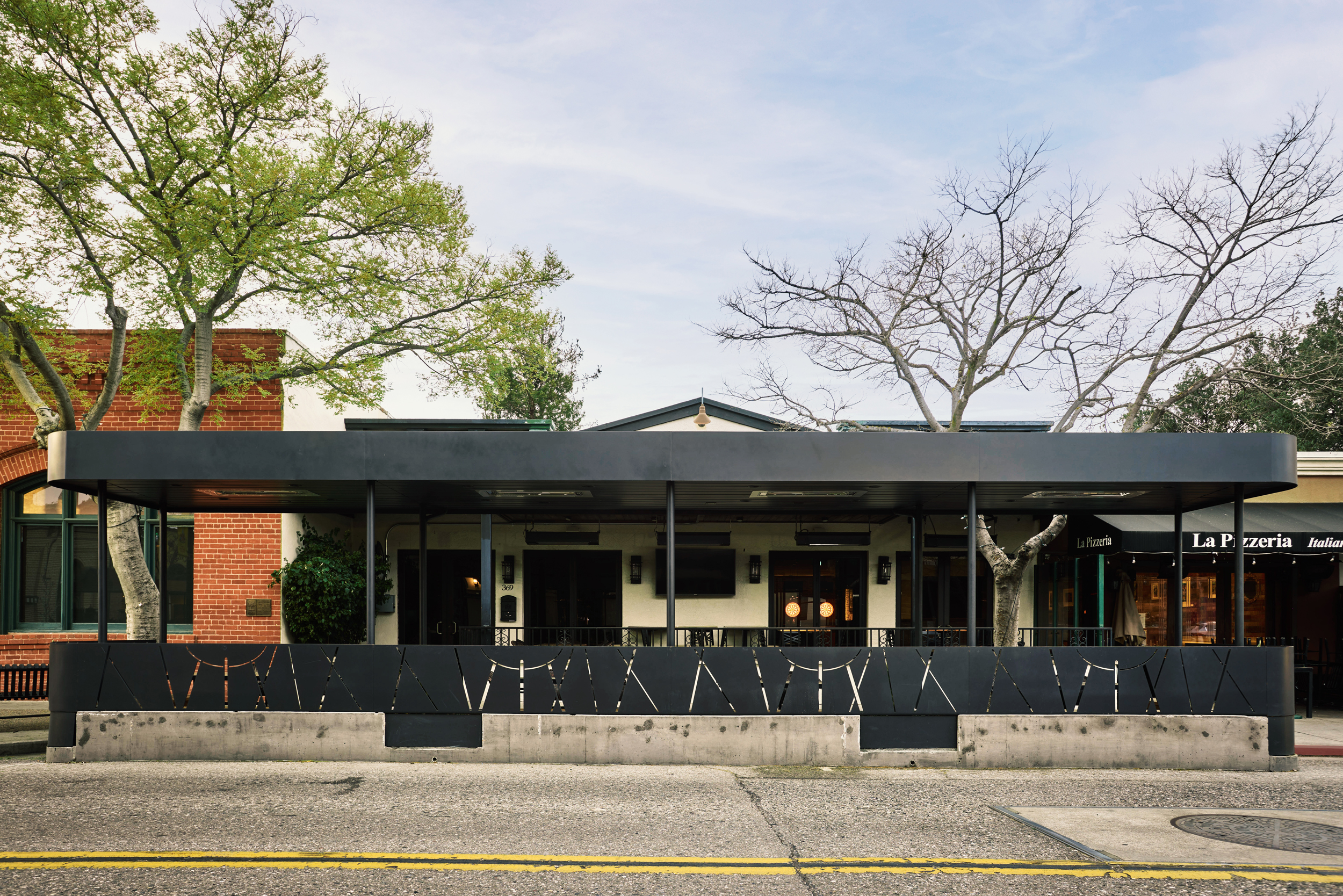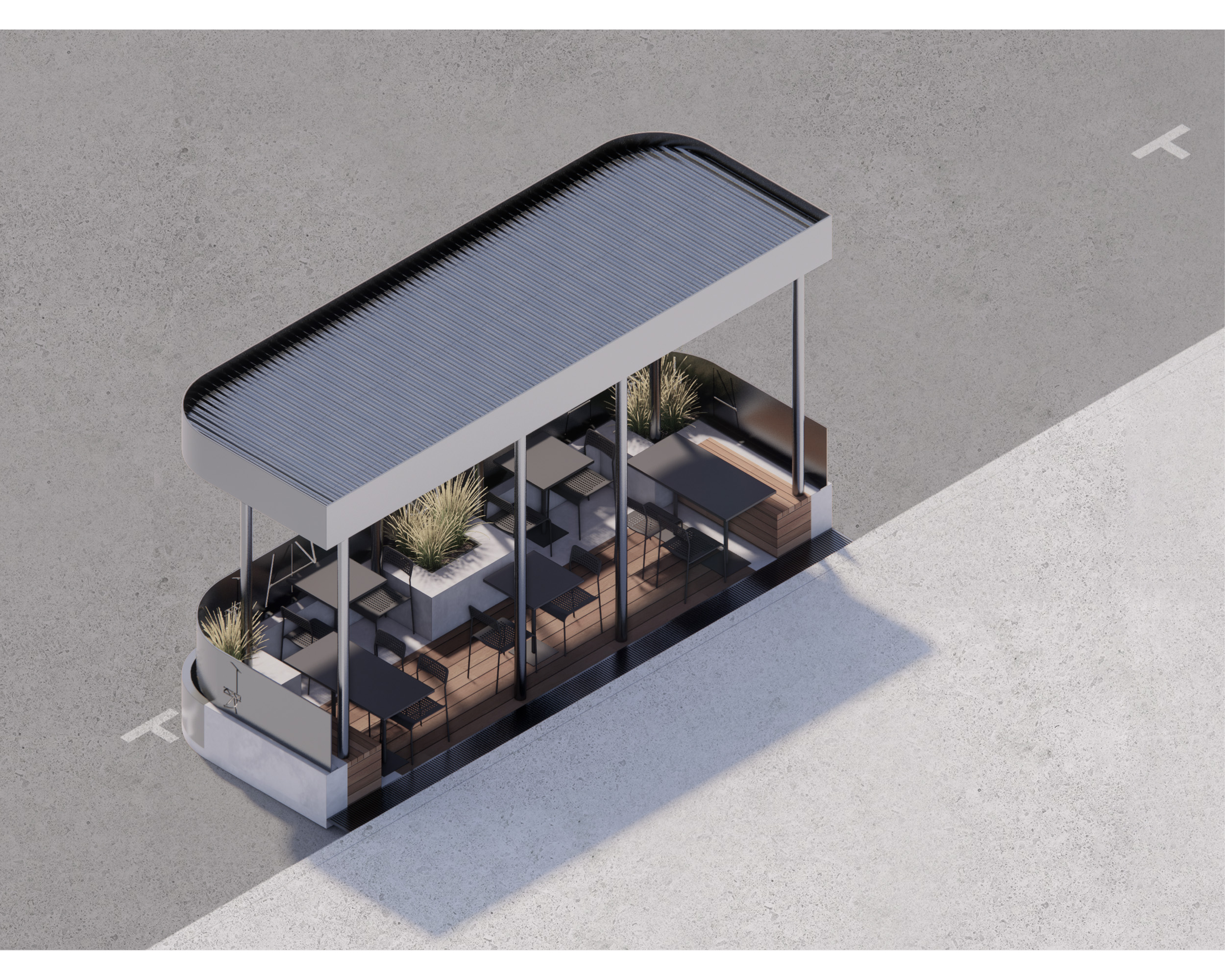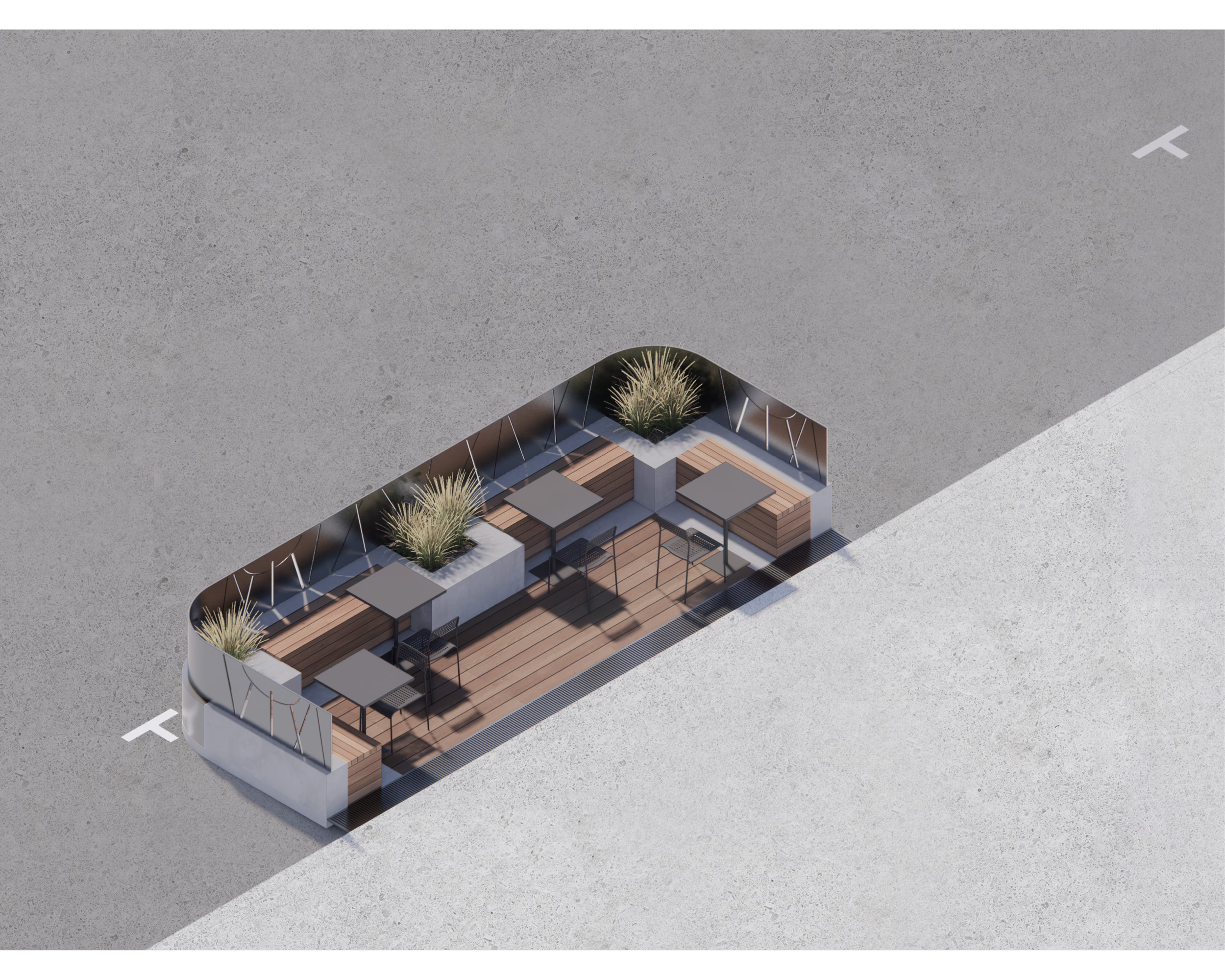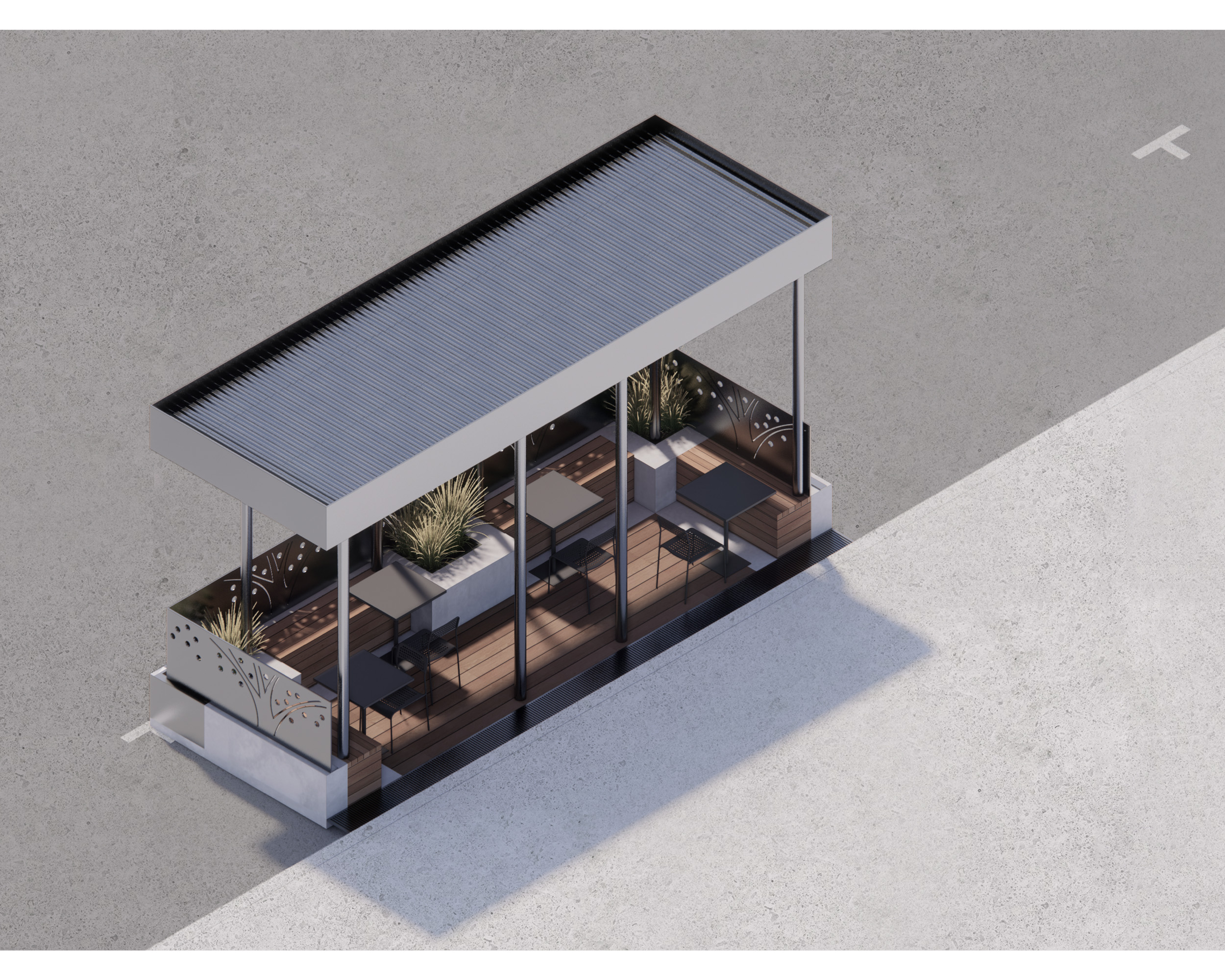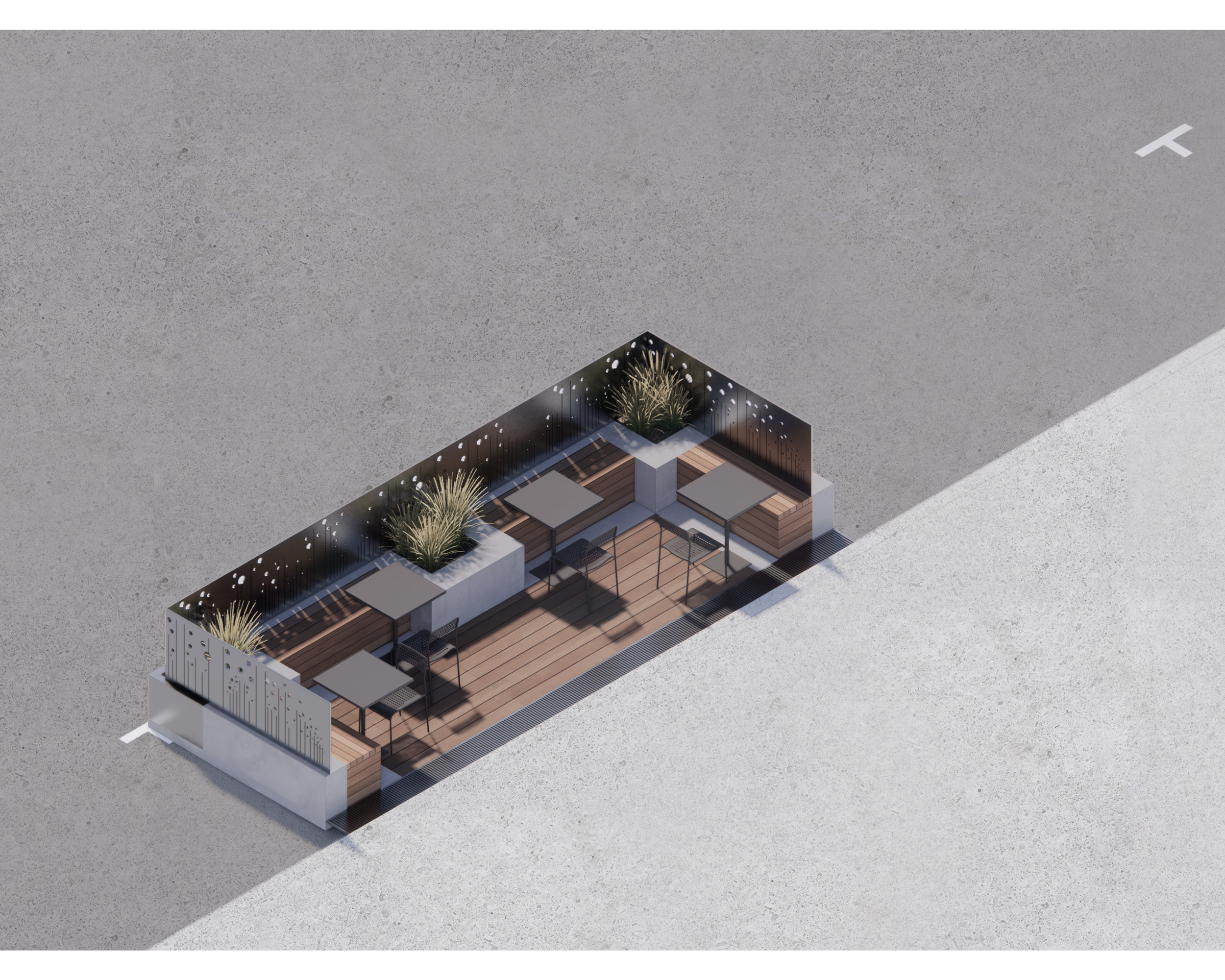
City of Campbell Parklets
Campbell, California
2023
Project Lead
Vadim Mishchuk
Builder
Method Construction
Photographer
Quinn Gravier
During the COVID-19 pandemic, parklets became vital solutions for cities seeking to adapt to the sudden challenges of social distancing and public health measures. Parklets converted street parking spaces into outdoor seating areas and provided businesses with a lifeline when indoor dining and retail were restricted. Restaurants, cafes, and bars across the Bay Area expanded their seating, offering communities a sense of normalcy during a time of isolation.
One key reason parklets were so helpful during the pandemic was their flexibility. Cities quickly adjusted regulations, making it easier and more affordable for businesses to install parklets. Many restaurant owners quickly erected wooden decks with simple railings that worked under temporary municipal ordinances. What began as a temporary solution during an unprecedented crisis eventually demonstrated how streets could be reimagined to prioritize people over cars, contributing to a greener, more accessible urban environment.
Four years later, the parklets are not aging well, and the temporary ordinances have expired. However, several cities in the Bay Area have had the foresight to create permanent parklets, working with restaurants to invest in outdoor dining spaces that meet more stringent codes and align to a cohesive set of design standards. Walnut Creek hired Sidell Pakravan Architects and Tipping Structural Engineers to design a mix-and-match modular set of design standards called “PODS” (Permitted Outdoor Dining Structures). The City of Campbell also hired Sidell Pakravan and Tipping to create two separate designs from which restaurants could choose. Five of these parklets have been built, and others are in the queue. Made from concrete, wood, and laser cut or powder-coated steel, the parklets create vibrant and safe spaces that foster community engagement.
